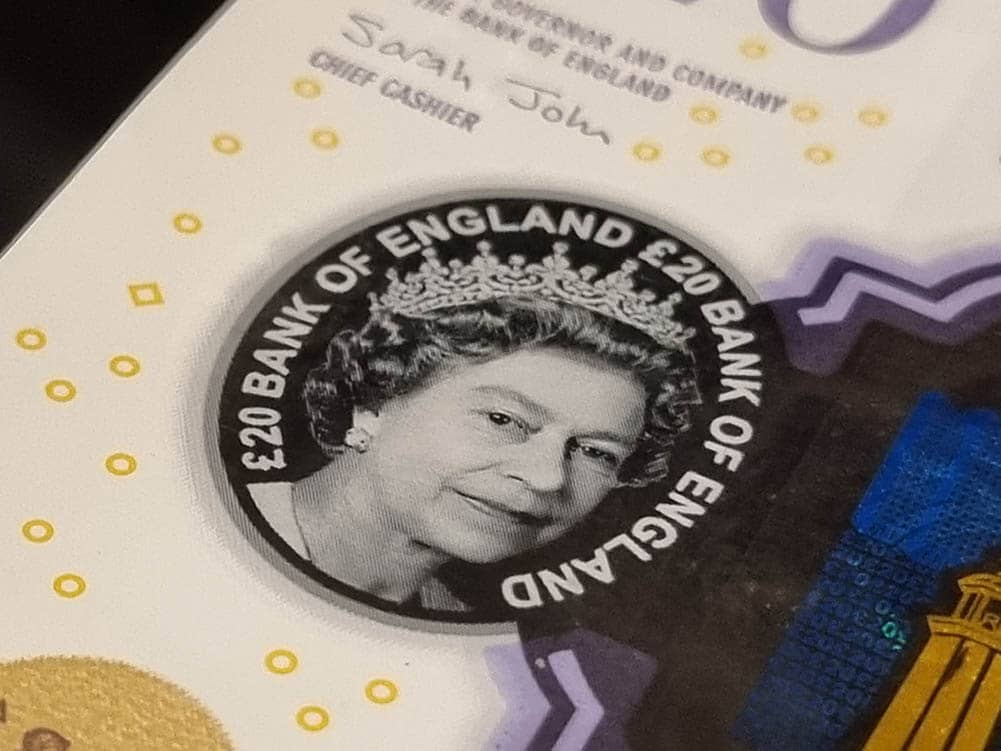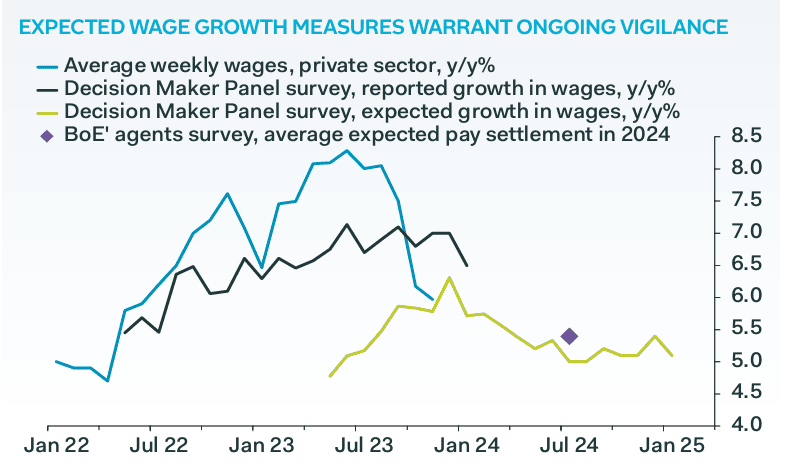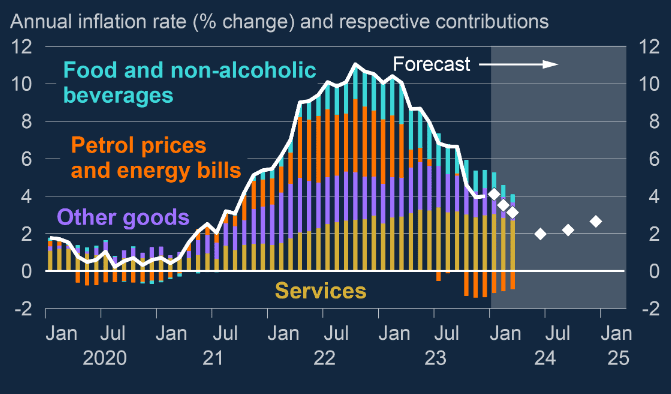Bank of England: August Rate Cut Most Likely Say Economists
- Written by: Gary Howes

Image © Pound Sterling Live
The Bank of England will cut interest rates in August, say economists, a prediction that is at odds with financial markets that still see a decent shot of a May rate cut.
The Bank of England dropped its hiking bias on Thursday and indicated it is now neutral on policy, saying it needs time to consider incoming data before cutting interest rates.
The timing of that rate cut and how many subsequent cuts will follow are hot topics for financial markets, influencing the pound's value, savings, commercial lending and mortgage rates.
In short, the cost of money rests on a subjective assumption that will continue to evolve.
Following the Bank of England's February decision and guidance, money market pricing shows investors lowered expectations for a May rate cut to 50/50, confirming the Bank landed something of a 'hawkish' message.
However, economists we follow say May is too early for the Bank to cut rates; if they are correct, this means further market repricing will occur over the coming months.
Victoria Clarke, UK Chief Economist at Santander CIB, says the adjustment in language gets the BoE ready for cuts, but it will wait a while longer to collect the evidence it needs to be happy to start a new cutting cycle.
"One such concern is that the Bank of England is still eyeing robust pay increases and will want evidence that these are moving onto a more policy-consistent trajectory. We maintain our view that the BoE is keen to hold out until summer before cutting rates," says Clarke.
Above image courtesy of Pantheon Macroeconomics.
To be sure, there are numerous economists who maintain an expectation for a May rate cut, but we note most accept the risks for a later hike have grown after Thursday.
Economists at MUFG Bank are sticking with a forecast for the BoE to cut rates in May but admit that there is a higher risk that the first cut could be delayed a little until June or August.
Nick Rees, FX Market Analyst at Monex Europe, says although inflation will slow sharply in the coming months, the full impact of the National Living Wage (NLW) rise will not be apparent until after the June meeting.
Indeed, the Bank's new forecasts show inflation will likely fall to the 2.0% target as soon as April, but it will pick up again and end the year closer to 3.0%.
Above: Inflation is expected to fall to 2.0% but then rise again.
This underpins the Bank's fears that inflation will prove sticky and resist rapidly returning to target.
"We continue to expect the Bank to stand pat until the second half of 2023 before delivering rate cuts. We think the Bank's focus on the upside risks posed by wages means that they will need to see the impact of April's rise in the NLW before a majority of the MPC feels comfortable cutting rates," says Rees.
Wage settlements continue to run well above levels consistent with an enduring fall to 2.0% and the Bank says it will watch upcoming wage trends.
"Wage inflation data over the coming months, and particularly surrounding the key March/April wage negotiation months will be important," says David Page, Head of Macro Research at AXA Investment Managers.
Monex says the Bank dropped a significant hint that it would not be satisfied seeing the first-round impact of the NLW rise but is instead concerned with potential second-round effects.
"With these only set to be visible in official data following the June meeting, we think the BoE has now confirmed our call that the NLW rise will keep them on hold until August," says Rees.
AXA's Page says the Bank will not receive information on the March/April wage negotiations until the week before its June meeting.
He also notes such a timeframe also encompasses the inclusion of any revised fiscal outlook from the 6 March Budget, that will be included in the May Monetary Policy Report.
"This adds to our judgement that the BoE will likely hold off from rate cuts until after this and we pencil in August as the date for a first easing," says Page.
AXA forecasts three cuts from August, taking Bank Rate to 4.50% by year-end and three cuts in H1 2025, taking rates to 3.75% by mid-2025, where policy will rest until year-end.





